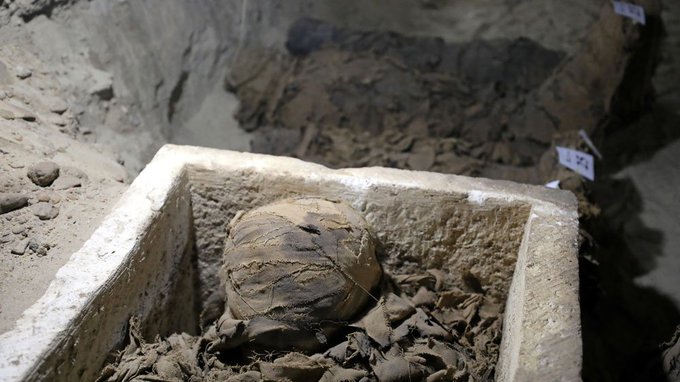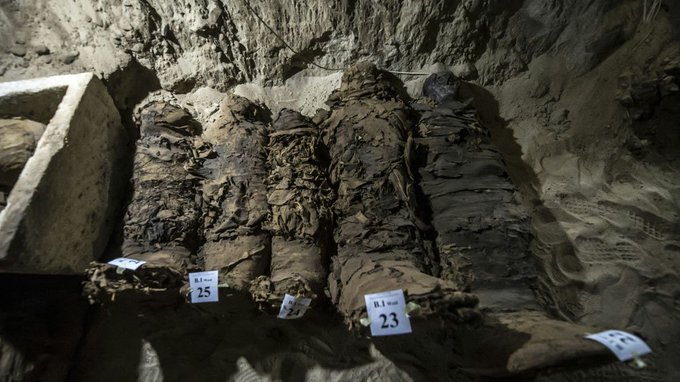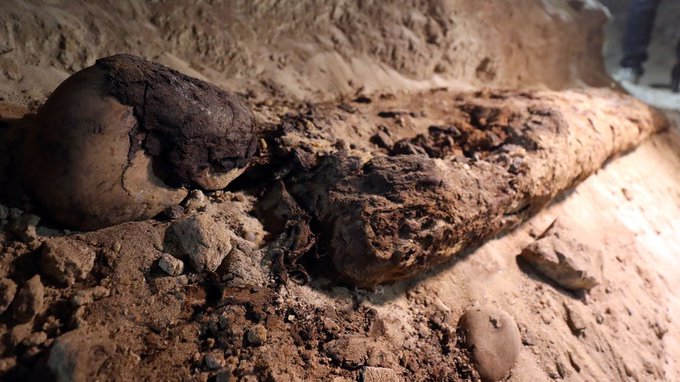These days, the gods appear to be blessing Egypt’s floundering tourism sector that hinges largely on its ancient past as a cradle of mankind.
Virtually every week, it seems, new aspects of Egypt’s history are being unearthed. Literally.
The country’s antiquities ministry announced Saturday that at least 17 well-preserved mummies were found in a necropolis in the village of Tuna al-Gabal, about 135 miles south of the capital, Cairo. The discovery surprised many because the ancient burial site on the fringes of the western desert was mainly known as an area where thousands of mummified birds and animals had been discovered over the years.
“It’s the first human necropolis to be found here in Tuna al-Gabal,” Egypt’s antiquities minister Khaled al-Anani told reporters at the site.
Judging from their elaborate preservation, the mummies likely belonged to officials or priests, he added. Also found at the site were six limestone and clay sarcophagi, two clay coffins and a number of other artifacts, Anani said. The discoveries likely date back to the Greco-Roman period, which lasted for nearly six centuries after Alexander the Great conquered Egypt in 332 B.C.
Read the whole story from The Washington Post.
Featured image courtesy of Reuters
These days, the gods appear to be blessing Egypt’s floundering tourism sector that hinges largely on its ancient past as a cradle of mankind.
Virtually every week, it seems, new aspects of Egypt’s history are being unearthed. Literally.
The country’s antiquities ministry announced Saturday that at least 17 well-preserved mummies were found in a necropolis in the village of Tuna al-Gabal, about 135 miles south of the capital, Cairo. The discovery surprised many because the ancient burial site on the fringes of the western desert was mainly known as an area where thousands of mummified birds and animals had been discovered over the years.
“It’s the first human necropolis to be found here in Tuna al-Gabal,” Egypt’s antiquities minister Khaled al-Anani told reporters at the site.
Judging from their elaborate preservation, the mummies likely belonged to officials or priests, he added. Also found at the site were six limestone and clay sarcophagi, two clay coffins and a number of other artifacts, Anani said. The discoveries likely date back to the Greco-Roman period, which lasted for nearly six centuries after Alexander the Great conquered Egypt in 332 B.C.
Read the whole story from The Washington Post.
Featured image courtesy of Reuters






























COMMENTS
There are on this article.
You must become a subscriber or login to view or post comments on this article.